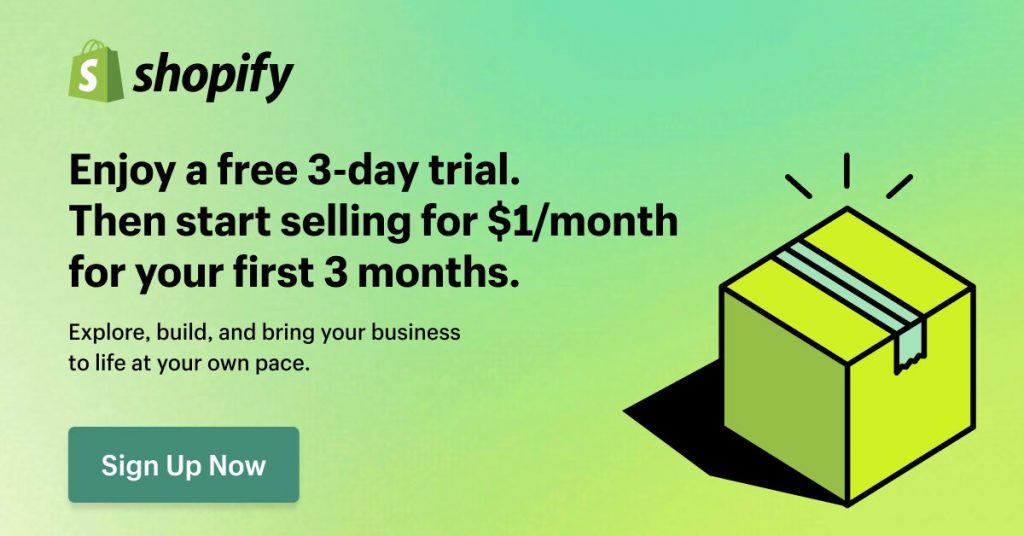6 Things To Check Before Buying An App Builder Tool In 2025 (with checklist questions)

According to recent studies, 70% of business enterprises adopt no-code application development technology due to its easy learning and cost-saving applications. It has become easier for an ordinary person to build applications by making dozens of no-code and low-code building tools available. Hence choosing one of these dozens can confuse you. In this article, we want to enlighten you with a few basic things to check before buying an app builder tool. So that you can make a knowledgeable choice that would match your specific needs and goals. Let’s dive in!
See more:
- What is an App Builder? Types, Benefits, Key Features And Specific Examples
- The 6 Best Free App Builders For Different Needs
- 10 Best No Code App Builders For Non-Techies 2025
Checklist questions about things to check before buying an app builder tool
| Key Area | Question |
| 1. Understanding Your Needs | – What issue does my app try to solve – How does that make it worthwhile for users? – Who is my target audience? How is that going to affect the design and features of my app? – What are must-have features (e.g. user authentication, payment handling, content management)? – How much would it cost to develop and maintain the app? – How does that compare to the pricing models of potential app builders? |
| 2. Evaluating Key Features | – How flexible are the options in terms of the designs? – Do I find templates easy to modify to replicate my brand? – Which third-party services (CRM, e-mail marketing, analytics, etc.) can be integrated with this app builder? – Will this tool offer me cross-platform deployability for my applications (iOS, Android, web)? – Does it contain built-in applications for user engagement (e.g. push notifications) and content management applications like posting schedules? |
| 3. Detecting User-Friendliness | – Is the interface easy to use, navigate, and understand, particularly for non-techies? – What types of educational materials (videos, webinars, documentation) are available? Are they current and comprehensive? – What do reviews from existing users say about their using this tool? Are common pain points revealed? |
| 4. Considering App Builder Cost and Pricing | – What pricing structure does the tool offer (free, subscription, one-time fee, or pay-as-you-go)? What are the advantages and disadvantages of such? – Are there any hidden charges for features like premium templates, extra storage, or customer support? – Is there a type of free trial or demo for trying out the tool before being forced to put money into it? |
| 5. Security and Data Protection | – What security protocols are there that would guarantee user data confidentiality? Is data encrypted both in transit and at rest? – What backup facilities are available? – How frequently the data backup is done, making it easy to restore the lost data. |
| 6. Customer Support | – What are the hours available for customer support? 24/7 or business hours only? – Average response time for support inquiries, are there metrics available indicating customer satisfaction? – Is there an active community of users where I can get help or share experiences? – Are there forums or social media groups dedicated to this tool? |
And now is detailed information on 6 things to check before buying an app builder tool:
1. Understanding your needs
First of all, identify the app’s needs and goals and make sure that the selected builder tool corresponds with all of them so that the process is not complicated. Here are the four essential points to check on:
- App type: Decide the kind of app (information-based, eCommerce, social media, etc) and make sure that the tool offers all the needed features, from the payment gateway to proper inventory management and user authentication.
- Target audience: Think about how your app would look, its UI/UX, and features from the perspective of your audience. For example, what may work for seniors might be easy, while a younger audience may be more attracted to a site that’s interesting and interactive.
- Basic features: You must have a rough idea about the basic expectations in terms of UI/UX, integration of social media, push notification, perhaps customizing, and multi-platform (iOS, Android, Web).
- Budget: Define a budget keeping aside for those tools, which have a variety of pricing models such as subscriptions, one-time fees, or usage-based charges.

Knowing your audience helps in tailoring the app’s design, UI/UX, and features to meet their needs
2. Evaluating key features
Evaluating the right capability features from various application builder tools is one step you need to take before going on to purchase such an instrument. Here are the first features for you to check on the way you make the best selection.
- Custom design and user familiarity: Search for app builders offering users customizable templates, drag-and-drop technology, and flexible designs to tweak the app’s appearance and features of your brand and goals.
- Integrations & compatibilities: Check that all these integrated toolkits involve social networks, analytics, payment gateways, and even CRMs to make streamlined workflows into enriched interactions with the consumer.
- Scalability & support multi-platform: Call for applications such as Android, iOS, or a web-based version, with an allowance for setting performance-based pricing schemes for scaling.
- Engagement & Content Management: Almost all of the push notifications that keep your user updated, a powerfully designed content management system for simplicity in managing and updating the content, should receive top priority.
- Vital Features: Search for push notifications, strong CMS, as well as these other core functionalities engaged in users and efficiently manage app content.

Evaluating key features before buying app builder tool
3. Assessing ease of use
Ease of use is a critical thing to check before buying an app builder tool. As it affects productivity, the learning curve, and the overall success of your project.
- Learning curve: Preferably drag-and-drop tools like Simicart, Adalo, Airtable, and Bubble,… which are easy to understand for seamless app development with little coding skill requirement.
- Support resources: You should consider the support offered from tutorial materials, documents, and customer help found in a good app builder because they help users out of all problems.
- User Reviews: Go through various platforms like Trustpilot, G2, and Capterra which certify reviews relating to usability and overall satisfaction; where “praise-worthy” tends to be synonymous with ease.

User reviews and feedback can provide valuable insights into the usability of an app builder tool
4. Considering cost and pricing
Cost and pricing model are important aspects to look for while evaluating app builder tools, particularly because you may have less or no budget left. So here are things to consider before making a decision.
According to, app builder tools deploy many different pricing models that have their pros and cons.
- Subscription Fees: Monthly charges are put into use by tools like Bubble and Adalo based on usage (Bubble charges $32/month for 175,000 workload units, and Adalo charges $45/month for 10,000 app actions).
- One-time payments: These types are rare, but tools like Builder.ai are feature-specific, and the upfront cost depends on the degree of complexity of the application.
- Free Trials and Demos: Test that tool free of charge before actually spending your bucks.
To make an informed decision, it’s essential to compare the costs of different app builder tools. Here is a brief comparison:
| App Builder | Starting Price (Monthly) | Key Features |
| Simicart | Free | Convert the Shopify store into an app, drag-and-drop interface, push notification… |
| Zoho Creator | $10/user + $20 base fee | Customizable apps, integrations |
| AppMachine | $49/user | Drag-and-drop interface, templates |
| AppSheet | $5/user | Data-driven apps, Google Sheets integration |
| Adalo | $45 (10k actions) | Visual builder, limited integrations |
| BuildFire | $59 | Mobile web apps, in-app purchases |
| Appy Pie | $18 | No coding required, multiple templates |
| AppMakr | $2/user | Basic features for simple apps |
| GoodBarber | $25 | E-commerce capabilities, customizable templates |
| AppInstitute | $40 | Marketing tools, analytics |
| OutSystems | $36,300 | Enterprise-level features, extensive integrations |
| Retool | $12 (builder) + $6 external | B2B SaaS tools, customizable dashboards |
| Builder.io | $24 (100k views) | Visual development for web apps |
| Bubble | $32 (175k units) | Full-stack web applications, extensive plugins |
| Appsmith | $40 (100 hours) | Open-source framework for internal tools |
| Plasmic | $49 (100k views) | Design-focused app building |
| Weweb | $49 (50k sessions) | No-code web app development |
| Glide | $49 (annual) | Personal use is free; team/business plans are available |
5. Security and data protection
In the frictionless digital age, data breaches and cybercrime have become much more common. According to a report by IBM, the average cost of a data breach in 2023 stood at about $4.45 million. Therefore emphasizes how financially and reputationally non-existing data breaches are dangerous for anyone.
Some of the most important security features that would count for any app builder tool probably are:
- Data Encryption: The tool must encrypt data at rest and in transit to keep sensitive user information safe from breaches.
- Regulatory Compliance: Seek compliance with key regulations such as GDPR and HIPAA to comply with legal standards and avoid fines.
- Backup and Recovery: Go for automated backups and easy recovery processes, as they maintain data integrity and enable uninterrupted business activities.
- Access Controls: Choose tools offering multi-factor authentication, role-based access, and secure logins.

Security and data protection is one of the critical things to check before buying an app builder tool
6. Customer support
Provide adequate customer support and build a vast community so the value of an app builder can be put and made to work maximally when it comes to user experience, retention, and satisfaction. This is something you may have to check before deciding:
- Diverse Support Channels: Make sure that the tool provides many options for contacting support, such as email, live chat, and phone to easily access.
- Quick Response Time: Prioritize tools with responsive support teams; read user reviews for insights into response times and effectiveness.
- Community Resources: Check for robust user communities, forums, and knowledge bases that supplement official support and address more flexibly.

Effective customer support can significantly impact your experience with an app builder tool
In conclusion, choosing the right app builder tool is a critical decision that can significantly impact the success of your mobile app. Let’s carefully evaluate things to check before buying an app builder tool, so that you can make the best objective decision.
If you are thinking of developing a mobile app, an app builder like Simicart Mobile App Builder is a good option to consider when you do not have the required technical know-how or resources. But with its simple interface, ready-to-go templates, and pretty good customer service, Simicart enables you to develop high-quality apps swiftly and promptly. For more information, you can visit Simicart Mobile App Builder on Shopify!

